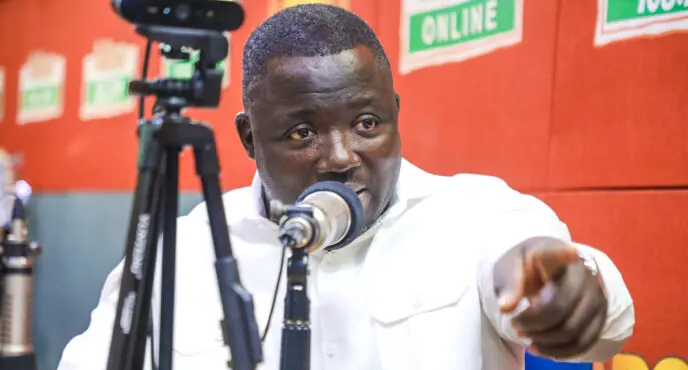The impending Akwatia by-election has become a focal point of political contention in Ghana, with the National Democratic Congress (NDC) and the New Patriotic Party (NPP) vying for the parliamentary seat. Mustapha Gbande, Deputy General Secretary of the NDC, exudes confidence in his party’s prospects, attributing their anticipated victory to a trifecta of strengths: internal democracy, competent leadership, and a demonstrable commitment to people-centered governance. He contrasts this with what he perceives as the NPP’s flawed approach, accusing the rival party of manipulating internal processes and imposing candidates upon the constituency, a practice he deems antithetical to democratic principles.
Gbande’s critique of the NPP centers on the alleged imposition of Solomon Kwame Asumadu as the party’s candidate for the Akwatia by-election. He argues that bypassing a primary election in favor of a purported consensus undermines the democratic foundations of the electoral process. By contrast, Gbande emphasizes the NDC’s unwavering commitment to internal democracy, highlighting the party’s decision to open the candidate selection process to all aspirants, allowing delegates to determine the most suitable representative for the constituency. He posits that this transparent and participatory approach fosters a sense of ownership and legitimacy within the party’s ranks, ultimately strengthening its electoral prospects.
Gbande further underscores the importance of meritocracy within the NDC, asserting that the party’s commitment to selecting candidates based on competence and qualifications sets it apart from the NPP. He contends that the NDC’s focus on quality politicking, coupled with its track record of good governance, resonates with the electorate and positions the party as a viable alternative to the NPP. Gbande’s assertions reflect a strategic effort to portray the NDC as a party that prioritizes the needs of the people and adheres to democratic principles, thereby bolstering its credibility and appeal among voters.
The NPP, however, refutes the accusations of undemocratic practices, maintaining that the selection of Asumadu was the result of extensive consultations with stakeholders within the constituency. Evans Nimako, Director of Elections for the NPP, argues that the party arrived at a consensus on Asumadu’s candidacy through dialogue and engagement, negating the claims of imposition. This divergence in narratives underscores the intensifying political battle for Akwatia, with both parties striving to project an image of democratic legitimacy and responsiveness to the electorate. While the NDC emphasizes its commitment to internal primaries and grassroots participation, the NPP highlights its consultative approach and emphasis on stakeholder engagement.
The Akwatia by-election serves as a microcosm of the broader political landscape in Ghana, reflecting the ongoing contestation between the NDC and the NPP for political dominance. The competing narratives surrounding candidate selection highlight the importance of internal party democracy and the perceived legitimacy of electoral processes. While the NDC emphasizes the importance of primaries and delegate participation, the NPP underscores the value of consensus-building and stakeholder engagement. The outcome of the by-election will likely have implications beyond the immediate constituency, influencing perceptions of both parties and potentially shaping the dynamics of future electoral contests.
Ultimately, the Akwatia by-election represents more than just a contest for a single parliamentary seat; it symbolizes a struggle for the hearts and minds of the electorate. The NDC, under Gbande’s leadership, seeks to position itself as the champion of internal democracy and people-centered governance, contrasting its approach with what it perceives as the NPP’s tendency towards imposition and manipulation. The NPP, on the other hand, defends its candidate selection process, emphasizing consultation and consensus-building. The electorate in Akwatia will ultimately decide which narrative resonates most strongly, casting their votes for the party they believe best represents their interests and upholds democratic principles.


